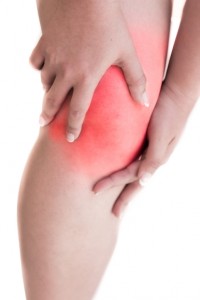Patellofemoral Pain Syndrome (Runner’s Knee)
PFPS is a cause of knee pain that affects 25% of people at some point in their lives and is even more common in runners, hence being known
as
runner’s knee. It describes pain behind the kneecap (
patella) because of damage to or irritation of the articular
cartilage where the patella meets the thigh bone (
femur).
What causes PFPS?
PFPS is considered to be an overuse injury caused by the irregular movement (tracking) and rubbing of the patella over the femur, while the
knee is bending and straightening. It is the repetitive bending and straightening of the knees that makes this condition more prevalent in
runners. Instead of gliding smoothly through a groove (called the
trochlea) at the femur, the poor alignment of the knee means
the patella can mistrack and instead rub against the femur itself. This causes irritation at the joint and damage to the underlying
cartilage and bone. Other contributing factors include:
- Muscular imbalances in the quadriceps
-
Increase in training intensity

- Overloading the knee during squatting/jumping
- Poor foot biomechanics
- Poor alignment of the lower limbs
- Increasing age
-
Female gender (because of the differences in leg alignment, the greater tendency for joint laxity, generally weaker hip muscles and hormonal
fluctuations)
Aside from running, PFPS typically is particularly prevalent in basketball, football, volleyball, netball, skiing and other running/jumping
sports.
What are the symptoms?
Symptoms of PFPS often come on gradually during high-impact activities such as running, squatting and climbing stairs. Pain may continue on
walking and in severe cases, may even be felt during rest. Symptoms can include:
- Pain and tenderness behind the kneecap
- Radiating pain around the knee
- Inflammation
- Pain after prolonged sitting
How is it treated?
Initially, treatment will look at reducing the painful symptoms. Following the PRICE principles (protection, rest, ice, compression,
elevation) can help reduce pain and swelling. Treatment will then focus on treating the cause and correcting any alignment issues that may
cause the pain to recur in the future. This may involve:
- Orthotics to correct foot and leg posture (described below)
-
Footwear assessment to ensure your
shoes are helping and not hindering your recovery
-
Strengthening weak muscles to restore good function

- Stretching to ensure an adequate range of motion through your joints and muscles
- Gait retraining and running technique analysis
- Activity modification
- Avoid those activities that worsen the symptoms
-
Use a brace to stabilize the knee cape
- Your podiatrist may strap your knee to stabilize it and perform massage therapy to release the tight quad muscle
- Surgery may be considered if non-surgical treatments do not improve the condition
It is important to treat PFPS effectively to avoid any further damage to the knee joint and the articular cartilage. Because articular
cartilage works to protect the bone ends and help them glide smoothly against each other, incurring damage to it can cause more pain and
issues in the knees.
Orthotics
Orthotics are an important component of treatment because very often, the abnormal knee function
is due to the way the foot functions. A pronated foot type (flat feet) foot causes the lower leg to rotate slightly inward. This causes the
patellar tendon to pull in an abnormal direction where it attaches in front of the knee causing damage to the tendon in this area. If this
is the cause of the problem then orthotics can correct the underlying foot condition that is affecting the lower leg and knee. Orthotics
will simultaneously function to address any other abnormalities issues you may be experiencing with the lower limbs to improve your overall
performance.


.png)
.png)